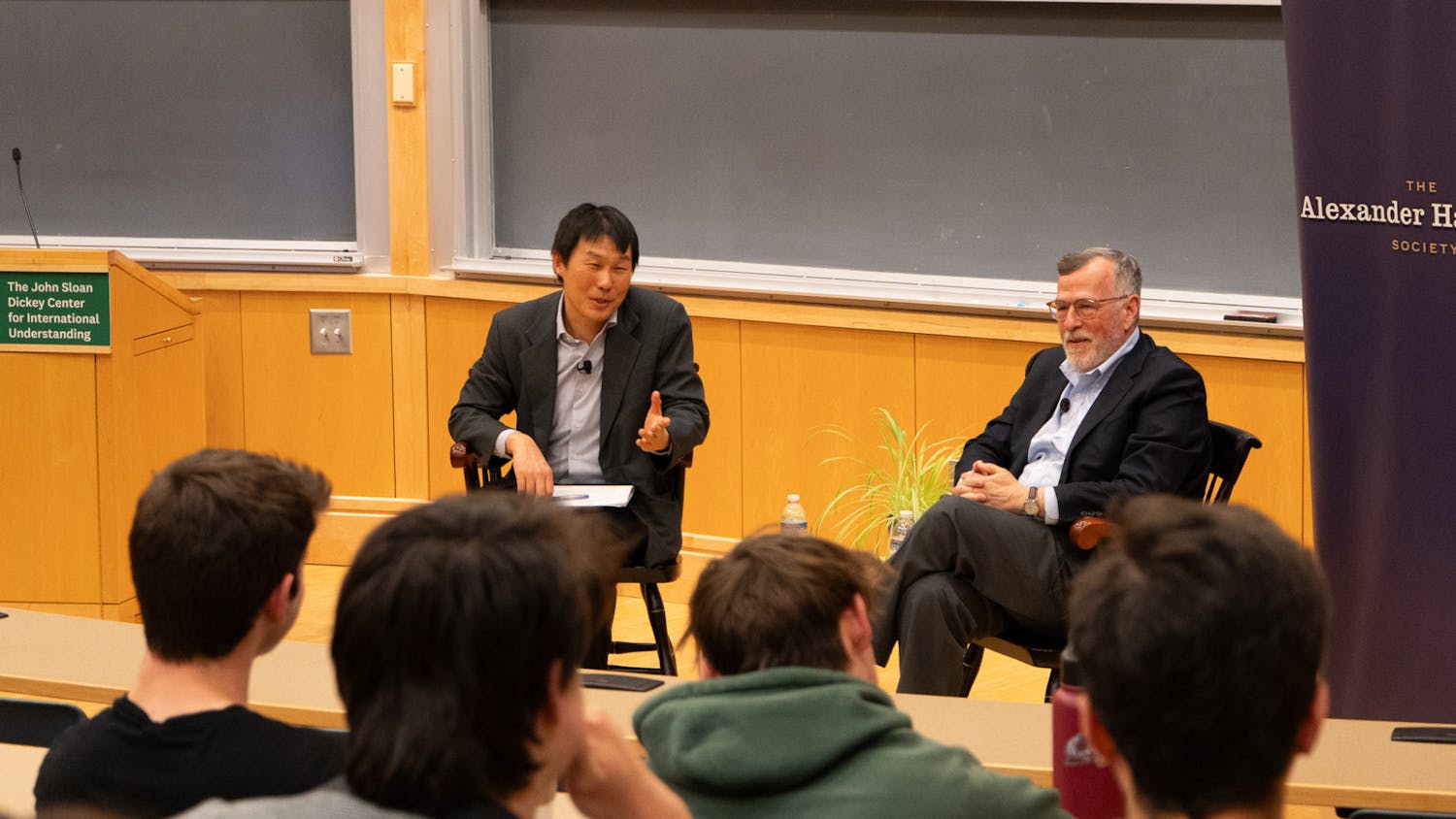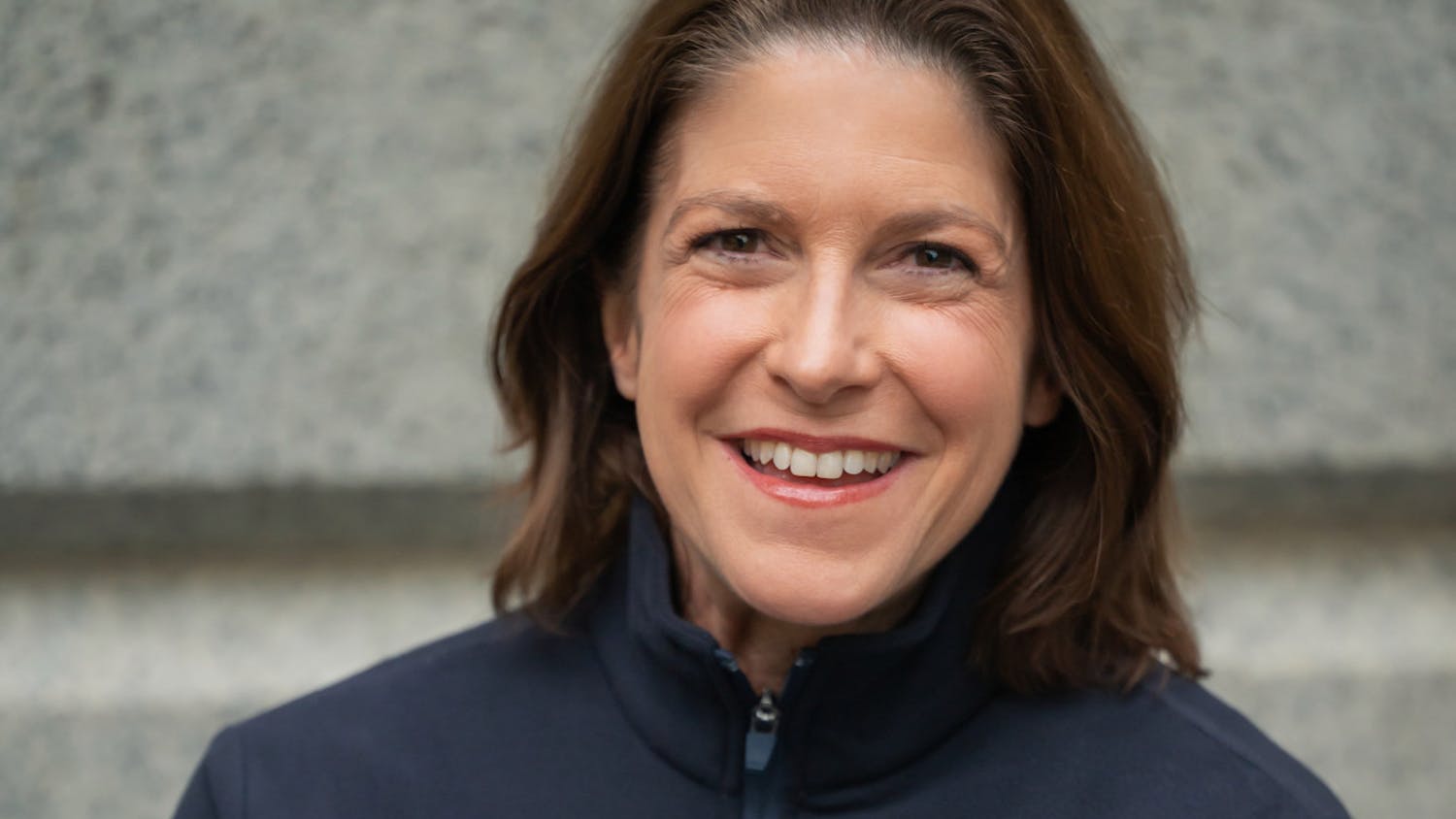Student Body President Eric Tanner '11 will continue with plans implement a new issue-based committee system in Student Assembly this term, having already selected two co-chairs for each of the seven new committees, he said in an interview with The Dartmouth.
The change was necessary because while many campus organizations focus on programming, the campus needed an organization that could deal primarily with policy issues, according to Tanner.
Last spring, the General Assembly approved constitutional bylaw amendments that replaced the previous committee system, which consisted of four committees, centered around programming and events. Tanner had proposed the changes as part of his platform during Student Body presidential elections.
Tanner and Assembly Spokesperson Catherine Treyz '13 contended that the structural changes will improve the organization's ability to serve the student body.
"The type of change and results you want to see will come around a lot more quickly and in a lot more organized fashion," Treyz said.
Treyz is a member of The Dartmouth Staff.
College administrators looked to the Assembly to address concerns about the College ban on student swimming in the Connecticut River because the Assembly's "new style is all about policy," Tanner said.
"At this point last year, if the same issue were to have arisen, they would have started their own committee and completely bypassed [the Assembly,]" Tanner said. "While the program we have put in place is still very young, you are already seeing the benefits."
Assembly members are divided over the changes however, according to several members interviewed.
"There is definitely a different mood. The General Assembly seemed a bit more combated," Elena Falloon '11, former Student Body presidential candidate, said. "With change, there is always some hesitancy."
Falloon was one of two candidates who ran unsuccessfully against Tanner for the Student Body presidency in April. While Tanner proposed the current revisions to the committee system during the campaign, Falloon pushed to streamline the previous committee structure, admonishing that future presidents might not support Tanner's solution to the plan.
Falloon said in the interview that she is "hesitant" about the new committee system because students must be selected to join. While students were allowed to walk onto the committees last term, the committees will now be capped at 10 members and two co-chairs, according to Tanner.
The Student Body president selects the co-chairs, and the co-chairs select the rest of the committee members, according to Tanner.
Members will be more motivated and dedicated because of the committee's selectivity, Tanner said. Non-members, including faculty, can still participate in committee meetings, he said.
One Assembly member, who asked to remain anonymous out of concern for her position in the Assembly, said she disapproves of the new committee system because it eliminates the programming of Student Assembly-sponsored activities.
While the Assembly approved the changes with a 17-3 vote in the spring, the member said she was pressured to vote for Tanner's proposal.
"We voted for it just to get it done and over with because [Tanner] didn't leave us the option of leaving the old committee system," she said.
In addition to concerns about the committee system itself, some Assembly members said they were concerned that Student Assembly neglected basic responsibilities during the Spring term while the new system was being discussed.
"Because so much time and effort and energy has been spent on implementing the new committee system, a lot of the day-to-day and administrative stuff of Student Assembly can fall by the wayside," one member said.
Tanner said decreasing attendance at Student Assembly meetings has been a trend during his time at the College, and attributed the particularly steep decline to the fact that his predecessor relinquished power midway through Spring term, creating an "awkward lame duck phase."
"The Assembly was basically stopped in their tracks," he said. "People's projects were halted because I didn't know about them, or because they weren't projects that were fitting under our new plan."
Tanner said he hopes his administration's work will continue through the end of the school year, while still allowing the future president to be able to set his or her own legislative agenda.
"When you have no executive board in place and you have no legislative agenda that is being passed on to you, it is very difficult to convince people to give up an hour of their time towards the end of the term to come to a meeting," Tanner said. "[Lower attendance] was a side effect of all the things I thought needed changing as part of my campaign."
This fall, the Assembly will work to improve attendance and participation at meetings, Tanner said.
"[Tanner and Student Body Vice President Brandon Aiono '11] are doing a good job of doing outreach, trying to get students to join their new committee system," Falloon said.
Some members said they believe the Assembly may regain momentum in the coming term.
"Because of the overturning of new leadership, things may appear confusing," former General Assembly member Rachel Wang '13 said. "We won't know until [Tanner and Aiono] get settled and set their agenda for the year."
Uthman Olagoke '11, who also ran against Tanner for the Student Body presidency, declined to comment when contacted by The Dartmouth.



